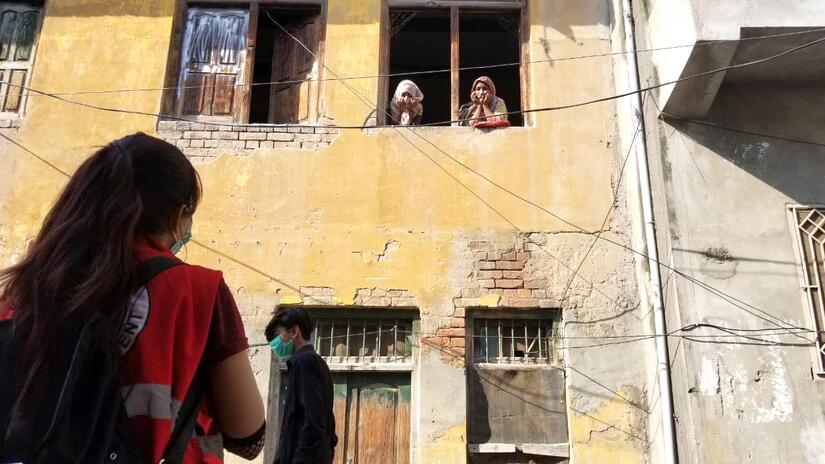Kuala Lumpur/Delhi/Islamabad/Dhaka/Geneva, 16 July 2020 – South Asia is fast becoming the next COVID-19 epicentre as cases soar in India, Pakistan and Bangladesh.
John Fleming, Asia Pacific Head of Health, International Federation of Red Cross and Red Crescent Societies (IFRC) said: “COVID-19 is spreading at an alarming rate in South Asia, home to a quarter of humanity.
“While the world’s attention has been focused on the unfolding crisis in the United States and South America, a concurrent human tragedy is fast emerging in South Asia. India alone is nearing 1 million infections in coming days.
“We need more focus on the new COVID-19 hotspot in South Asia. Lives of people in India are no less valuable than people in other parts of the world.”
Already India, Pakistan and Bangladesh have reached a combined total of more than 1.35 million cases – over 10 per cent of the world’s total. There have been more than 31,000 deaths across the three countries and the total may be much higher.
According to latest projections from Massachusetts Institute of Technology (MIT) researchers, India risks having the largest number of COVID-19 cases in the coming months.
In a grim prognosis for the region, the MIT research predicts that by the end of the year there may be hundreds of millions of cases concentrated in a few countries estimated to have insufficient responses given perceived risks, primarily India, but also Bangladesh and Pakistan.
The report, which is still to be peer reviewed, predicts that in six months from now, India will be the worst affected country in the world, with up to 287,000 cases a day.
The immediate forecasts are equally dire for the region. According to figures from the John Hopkins Centre collated by the University of Melbourne, active cases in India are expected to rise by 36 per cent over the next 10 days and nearly double in the next 20 days.
“We now need to urgently turn our attention to this region, urgently step up prevention measures and expand our resources to save thousands of lives,” said Mr Fleming.
“In these unprecedented times, we know many countries, including India, Bangladesh and Pakistan, have taken extraordinary measures to help slow the spread of this disease.
“Red Cross and Red Crescent health teams including thousands of volunteers have been a key part of that effort, conducting hygiene campaigns to slow the spread of the virus, providing relief to those self-isolating, and support for over-stretched healthcare systems.
“We need to double this effort, sharing the challenge across all levels of society, in the communities, in organisations, nationally and globally, we need to urgently bring more resources to protect people and to contain the virus.”
Press release
IFRC Global COVID-19 study: vaccine bank an ‘essential element’ of next pandemic response
IFRC Global COVID-19 study: vaccine bank an ‘essential element’ of next pandemic response
| Press release

